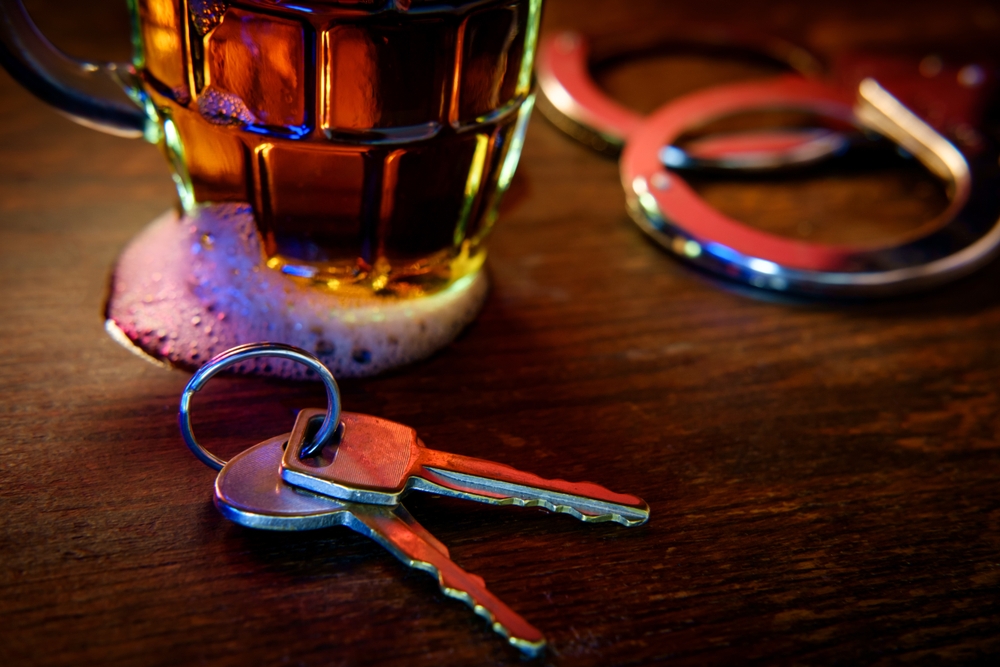
Driving under the influence (DUI) is one of the most serious offenses you can commit behind the wheel. In Pennsylvania, DUI laws are strict, and the penalties can significantly impact your finances, freedom, and future. Understanding these laws, the associated penalties, and the role of a DUI defense lawyer is crucial to making informed decisions and protecting your rights.
Understanding Pennsylvania’s DUI Laws
Pennsylvania has strict laws to address driving under the influence (DUI), aiming to reduce impaired driving and promote safer roads. These regulations apply to anyone operating a vehicle while under the influence of alcohol, drugs, or a combination of substances that impair their ability to drive safely.
Blood Alcohol Concentration (BAC) Limits in Pennsylvania
The state determines DUI violations based on a driver’s BAC levels, with specific thresholds depending on the driver’s category:
- 0.08% or above: The legal limit for drivers aged 21 and older.
- 0.02% or above: Applies to drivers under 21, reflecting Pennsylvania’s strict zero-tolerance policy for underage drinking.
- 0.04% or above: Set for drivers of commercial vehicles.
Three Levels of DUI Offenses
Pennsylvania organizes DUI offenses into three levels, determined by BAC readings and the degree of impairment:
- General Impairment: BAC between 0.08% and 0.099%.
- High BAC: BAC between 0.10% and 0.159%.
- Highest BAC: BAC at or above 0.16%, or cases involving drug-related impairment.
The classification of the offense impacts the penalties, with higher BAC levels or additional factors leading to more severe consequences. These laws emphasize accountability and aim to deter impaired driving across the state.
Penalties for DUI in Pennsylvania
The penalties for DUI in Pennsylvania depend on factors such as your BAC level, prior convictions, and whether an accident occurred. Here's an overview of what to expect based on offense severity and repetition.
Penalties for a First DUI Offense
First-time DUI offenses carry penalties that increase with higher BAC levels:
BAC 0.08% to 0.099% (General Impairment):
- Up to six months of probation
- A $300 fine
- Completion of an alcohol highway safety school program
- Installation of an ignition interlock device for one year
- Potential court-ordered treatment
BAC 0.10% to 0.159% (High BAC):
- 48 hours to six months in jail
- Fines ranging from $500 to $5,000
- Mandatory participation in alcohol highway safety school
- One-year ignition interlock device requirement
- A 12-month driver’s license suspension
- Possible treatment ordered by the court
BAC 0.16% or higher (Highest BAC):
- 72 hours to six months in jail
- Fines between $1,000 and $5,000
- Completion of alcohol highway safety school
- One-year ignition interlock device requirement
- A one-year license suspension
- Potentially court-mandated treatment
Penalties for a Second DUI Offense
Repeat offenses come with significantly stricter consequences:
- Jail time ranging from five days to five years, depending on the BAC level
- Fines starting at $300 and reaching up to $10,000
- A mandatory license suspension of at least 12 months
- Completion of treatment programs when ordered
Penalties for Third and Subsequent DUI Offenses
Repeat DUI offenders face the harshest penalties under Pennsylvania law:
- Extended imprisonment, potentially up to five years
- Hefty fines, which can reach $10,000
- Lengthy or even indefinite license suspensions
- Mandatory participation in substance abuse treatment programs
This tiered penalty system underscores Pennsylvania’s focus on addressing impairment severity while applying escalating consequences for repeat offenses. The state’s approach aims to deter driving under the influence and emphasize accountability for those who repeatedly break the law.
Additional Consequences of a DUI Conviction
A DUI conviction affects more than just your driving privileges and finances. Here are some other long-term consequences:
Criminal Record
A DUI conviction will result in a permanent criminal record, which can impact your:
- Employment opportunities.
- Housing applications.
- Professional licensing.
- Increased Insurance Costs
After a DUI, your car insurance rates can increase significantly, as insurers view you as a high-risk driver.
Ignition Interlock Requirements
For all offenses on all BAC levels, Pennsylvania requires the installation of an IID in your vehicle, which prevents the car from starting if alcohol is detected on your breath.
Loss of Personal and Professional Reputation
The social stigma associated with a DUI conviction can harm your relationships and professional standing.
Implied Consent Laws and Refusing a BAC Test
Pennsylvania’s implied consent law requires drivers to submit to chemical testing (breath, blood, or urine) if lawfully arrested for DUI. Refusing to take the test can lead to:
- Automatic license suspension: 12 months for a first refusal, 18 months for subsequent refusals.
- Restoration fee: $500 for first refusal, $1,000 for a second, and $2,000 for third
While refusing a test may seem like a way to avoid a DUI conviction, it often complicates your case.
Defenses Against DUI Charges
A skilled DUI defense lawyer can challenge the evidence against you and build a strong defense. Common strategies include:
Challenging the Traffic Stop
If the officer did not have reasonable suspicion to pull you over, the evidence gathered during the stop may be inadmissible in court.
Disputing BAC Results
Breathalyzer and blood test results are not always accurate. Your lawyer may question the calibration of the device or the handling of the samples.
Proving Lack of Impairment
A high BAC does not always mean impaired driving. Your lawyer can argue that your driving abilities were not affected at the time of the arrest.
Highlighting Procedural Errors
If law enforcement failed to follow proper procedures during your arrest or testing, your charges could be reduced or dismissed.
Why You Need a DUI Defense Lawyer
The complexities of Pennsylvania’s DUI laws make it essential to have an experienced attorney on your side. A DUI defense lawyer can:
Explain Your Rights
Your lawyer will ensure you understand your legal rights and options at every stage of the case.
Negotiate for Reduced Penalties
If the evidence against you is strong, your lawyer can negotiate with prosecutors for lesser charges or alternative sentencing options, such as diversion programs.
Advocate for Your Future
Your attorney will fight to protect your driving privileges, reduce fines, and minimize the long-term impact of a DUI conviction.
Represent You in Court
If your case goes to trial, your lawyer will present a compelling defense and cross-examine witnesses to challenge the prosecution’s case.
Steps to Take After a DUI Arrest
If you’ve been arrested for DUI in Pennsylvania, here’s what you should do to protect your rights:
- Remain Calm: Avoid arguing with the officer or making incriminating statements.
- Comply with Testing: Refusing a BAC test can lead to additional penalties.
- Document the Incident: Write down everything you remember about the arrest, including the officer’s actions and statements.
- Contact a DUI Defense Lawyer: The sooner you involve an attorney, the better your chances of securing a favorable outcome.
Frequently Asked Questions
Here are some of the most commonly asked questions about DUI charges in Pennsylvania.
Can a DUI be expunged in Pennsylvania?
In some cases, first-time offenders may qualify for Pennsylvania’s Accelerated Rehabilitative Disposition (ARD) program, which allows for the expungement of DUI charges after successful completion.
Will I lose my license for a first DUI?
License suspension depends on your BAC level and whether you refused a chemical test. A general impairment DUI typically does not result in suspension for a first offense.
What happens if I’m under 21 and charged with DUI?
Drivers under 21 face harsher penalties, including higher fines, license suspension, and mandatory alcohol education programs, under Pennsylvania’s zero-tolerance policy.
Call the The Law Offices of Joseph Lesniak for Aggressive DUI Defense in Pennsylvania
A DUI charge doesn’t have to define your future. At The Law Offices of Joseph Lesniak, we understand the serious consequences of a DUI conviction and are committed to fighting for the best possible outcome in your case.
If you’ve been arrested for DUI, don’t wait to seek legal help. Call (484) 444-2348 or fill out our online contact form to schedule a free consultation. We help clients in Media and throughout Chester County, PA.
Disclaimer: This blog is intended for informational purposes only and does not establish an attorney-client relationship. It should not be considered as legal advice. For personalized legal assistance, please consult our team directly.

